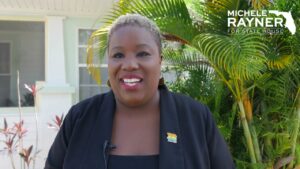
Melinda Stanwood, a Leon County parent, has voiced her concerns about how social media is affecting her children.
“My kids bring their phones to the dinner table, car, bedroom and bathroom. The addictiveness of social media cannot be understated,” Stanwood said.
Social media has had an effect on children from the moment they were able to read — for better and for worse. Social media can be helpful as well as harmful depending on the content they are seeing on a daily basis.
Robert D. Keder, a physician at Connecticut Children’s Specialty Group, wrote an article in 2018 titled “Media and your child’s development.”
“When introduced at the right age, social media can facilitate learning, networking and friendships. Things like FaceTime and Skype can help children stay in touch and develop relationships with extended family members,” Keder wrote.
Social media has the potential to teach and enrich the lives of minors when introduced correctly. When not introduced correctly, it can have downsides as well.
Kate Eshleman, a doctor of psychology at the Cleveland Clinic, discussed the risks and potential dangers of children using social media in a 2021 article titled “Effects of Social Media on Children.”
“If kids are being asked to get off social media and do their homework, then parents might see increased periods of irritability or frustration directed towards parents,” Eshleman wrote.
A New Knight Foundation poll by Ipsos showed that 86 percent of Americans are concerned about the impact social media has on children’s mental health, with 55 percent saying they are very concerned.
In Florida,
House Bill 591 — Social Media Protection for Minors — has been introduced by Representative Michele Rayner-Goolsby, D-Clearwater, and Representative Tyler Sirois, R-Cape Canaveral. This bill will limit minors using social media. The bill will also prohibit schools from requiring students to register, enroll or participate in social media platforms for educational purposes.
“I think that this bill will help students, especially those who are under 18. I think that it will provide guard rails and protections,” Rayner-Goolsby said.
Khara Boender, state policy director at Washington-based Computer & Communications Industry Association, shared her thoughts on the bill being considered by Florida lawmakers.
“Schools already have to decide what websites students can have access to on school grounds. These are used to ban sites like gaming and others so that students can stay focused on using the internet to research information for papers and projects,” Boender said.
Boender said multiples states are exploring options to offer curriculum informing students on media literacy.
If House Bill 591 passes it will take effect on Jan. 1, 2024.